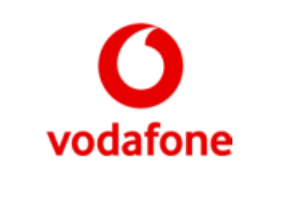The UK Competition and Markets Authority (CMA) will have its say on whether becoming the biggest network operator in the UK is good for consumers (see below), and whether it creates a player with significant market power. It could fall two ways, says James Gray, managing director of Graystone Strategy.
Now that Virgin Mobile has completed its merger with O2, many would say it sets a precedent. But that merger combined a provider of fixed telecoms and a mobile operator, so the risk to consumer choice was diminished.
There are now other market moves to consider, such as TalkTalk being a target for VMO2. To manage that context and the risk of merging two operator brands, the regulator might impose terms, as happened when Three merged with O2 in Ireland. In that case, the regulator forced Three to issue additional MVNO licences with specific commercials to drive competition. We should expect to see conditions such as giving back spectrum.
However, given the current economic challenges, and the increased investment all networks are having to make in 5G, and in coverage to reduce the digital divide, my inclination is that this will be approved with limited intervention.
Why a joint venture?
There are several benefits for both entities:
- They are largely complementary; Vodafone is more premium than Three and has a strong enterprise base compared to Three’s limited enterprise base. Three has a more youthful brand than Vodafone and it appeals to younger data hungry consumers who are less likely to be found on the Vodafone base.
- Spectrum (the motorway down which voice and data travels) is the lifeblood of telecoms and Three has a big holding for a relatively small base. That will be very appealing to Vodafone because the more spectrum you have the faster the 5G service you can supply. Three has big blocks of contiguous spectrum, which would really enhance the mobile data experience for customers of a merged entity.
It is likely that the new entity will have more spectrum than needed for macro network activities. This is appealing too Both entities have been building and demonstrating enterprise private networks (a big growth area), so additional spectrum means they can hive off some for private networks for large corporate customers.
- Economies of scale, both companies can optimise their equipment, their sites and drive economies of scale, efficiencies and potentially improve services for customers. 5G investment is significant so running one network where previously you would have run two brings huge savings and efficiencies on kit, rent, servicing and people. (NB: The technology will take far longer than setting up the joint venture.)
What about consumers?

If approved, the impact will be limited initially. However, there is a risk that consumers find there is less competition over time. It all rests on the virtual operator partnerships being maintained, and how much effort is put into providing a better network experience and passing on savings.
To put this into context, Three was always a challenger brand – the first to offer unlimited data, always focused on value, delivering far more GB for less. Vodafone is not and will want to curb the ARPU decline. In the medium term, I would expect Three customers to get less value after the deal.
This might prompt the base to look elsewhere. However, commercially that won’t be a loss to the new JV. Both networks have an extensive MVNO portfolio including ID Mobile, Asda Mobile, Lebara, Gamma, and there will still be the sub brands of TalkMobile, VOXI, SMARTY offering better value SIM only deals, so there will still be revenue to be had from the price focused brands that consumers could switch to.
Long story short, if the wholesale / MVNO market is sustained, consumers will still have choice and there will still be challengers in the market.
Overall verdict – is it good, bad, or neutral? Long term probably good as there’s potential for a better user experience, but in the short- to medium- term probably neutral.
The author is James Gray, managing director of Graystone Strategy.
Comment on this article below or via Twitter: @VanillaPlus OR @jcvplus






